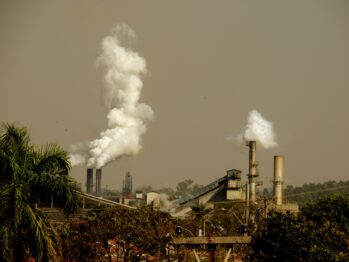Government intervention in the economy is ubiquitous. Around the campus of the University of Chicago, we have what we call “Casey’s Conjecture,” that just about anything unusual in society can be explained by the tax code. Why is health insurance in the United States largely linked to your job? Because fringe benefits weren’t subject to wage controls during World War II, and subsequently not taxed as income. Why are wheels of Emmentaler cheese over 200 pounds? Because medieval Swiss authorities would levy taxes per wheel, rather than by weight. The list is long, and the lunch conversations are fun.
The energy sector is no exception, with costly consequences that shape the entire structure of the industry. As an example of the unintended consequences of poorly designed regulations, consider fuel-economy standards for passenger cars and light trucks. The economic rationale for such regulation is that emissions from gasoline cause pollution, so that consumers are imposing health costs on others when they make driving decisions. At first blush, requiring higher fuel economy is a way to reduce these costs.
However, such standards are often designed so that larger vehicles are subject to less stringent requirements—because it’s not cost-effective to hold large pickups and tiny smart cars to the same standard. Just as with Swiss cheese, this provides carmakers with a strategy to reduce the cost of compliance: add more weight. From their perspective, this makes sense if it’s cheaper to add weight than to build more efficient cars, and consumers value the lower price more than the lower fuel economy.
My colleagues Koichiro Ito and James Sallee recently provided a striking demonstration of how automakers respond to this type of attribute-based regulation by taking a look at the auto market in Japan. Several years ago, regulators there implemented a new system that created discrete and discontinuous standards for vehicles based on weight. The goal was to provide flexibility to manufacturers that produced larger vehicles.
You can see how automakers responded to these incentives in the figure below. The red steps indicate the way that regulatory standards decline with the weight of the vehicle. The blue bars represent the volume of vehicles in the market. The spikes you see right after the changes in regulatory stringency indicate that a number of cars added weight so that they would be subject to more lax standards. Note that these surges occur right at the kinks, which suggests that automakers are designing cars that are functionally similar to the nearest, lighter standard class, but with some extra weight to push them into a lower regulatory bracket.

Overall, this study finds that 10% of cars in the Japanese market are carrying around the equivalent of a whole wheel of Emmentaler for no reason at all but to skirt the rules. Not only is this counterproductive for the goal of reducing fuel consumption, it’s actually dangerous: Heavier cars are more likely to kill the people they hit.
Examples like this are great fodder for those who seek the “deconstruction of the administrative state.” It’s important to keep in mind, however, that these regulations did not emerge from a vacuum: the underlying problems they were intended to fix will persist in their absence. There is a loss to society if the removal of a burdensome regulation leads to an even greater loss in, say, the health of people affected by the regulated industry’s unconstrained operations. Sometimes, an inefficient regulation is better than nothing.
This point is often ignored by self-proclaimed free-marketeers who advocate for broad-based deregulation as a means of unleashing economic growth. But this view confuses private profits with social wellbeing. It is a pro-business position, not a free-enterprise position. While this has been pointed out time and again over the years, it remains confused in our public discourse.
Benefits from free enterprise require the willing participation of all parties involved—a condition clearly violated when a third party is being harmed. If the parties to an exchange cannot find sufficient surplus to compensate those they harm, there’s no clamoring about profits or jobs that is going to make it in the public’s interest to allow. It’s like drinking sea water to quench your thirst.
Instead, the point of identifying distortionary regulations such as Japan’s emissions standards is to motivate the search for less distortionary approaches. Fuel economy standards in the United States are attribute based, but the curve is continuous, and our system allows automakers to trade credits to ensure that compliance is met at the lowest possible cost. It is still an imperfect system to be sure, and a gas tax would be more efficient. But this realization is a far cry from dismissing regulations altogether, or thinking that putting businesspeople in charge is going to improve the quality of public policy based on a confusion of private profitability and social cost-benefit analysis.
Milton Friedman made this point more succinctly: “Stop kidding yourself in to thinking that you can use the business community as a way to promote free enterprise.”
















